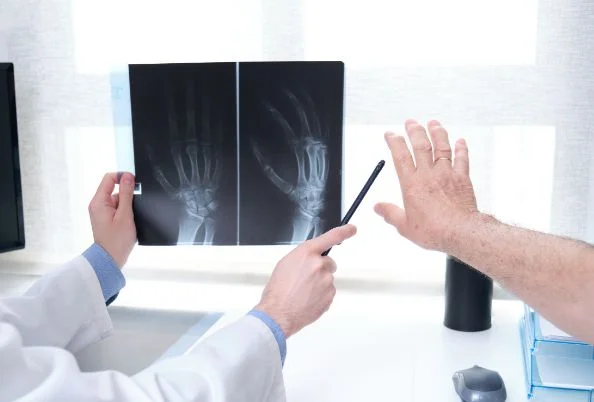Departments
In modern times, Rheumatology is a rapidly evolving medical specialty, with advancements owing largely due to new scientific discoveries about the immunology of these disorders. Evidence-based medical treatment of rheumatological disorders at our hospital has helped patients with rheumatism lead a near normal life.
The Rheumatology Department is a specialised department devoted to the diagnosis and treatment of conditions and diseases affecting the joints, muscles, and bones. Our Rheumatologists deal mainly with clinical problems involving joints, soft tissues, certain autoimmune diseases, and the allied conditions of connective tissues. Essentially, they treat disorders, that affect the musculoskeletal system. This includes many autoimmune diseases as well.
Read More

If musculoskeletal pains are not severe or disabling and lasts just a few days, it makes sense to give the problem a reasonable chance to be resolved. But sometimes, pain in the joints, muscles or bones is severe or persists for more than a few days. At that point, you should see your physician. Many types of rheumatic diseases are not easily identified in the early stages. Rheumatologists are specially trained to perform the investigative work necessary to discover the cause of swelling and pain. It's important to determine a correct diagnosis early so that appropriate treatment can begin immediately, as some musculoskeletal disorders respond best to treatment in the early stages of the disease.
Because some rheumatic diseases are complex, one visit to a Rheumatologist may not be enough to determine a diagnosis and course of treatment. These diseases often change or evolve over time. There are several diseases such as rheumatoid arthritis, osteoarthritis, SLE, gout, ankylosing, spondylosis etc which belong to the group of Rheumatoid disorders. Many patients already diagnosed and having treatment visit for further management.
The role of the Rheumatologist depends on several factors and needs. He works with other physicians, sometimes acting as a "referral consultant" to advise another physician about a specific diagnosis and treatment plan. In other situations, he takes the assistance of skilled professionals including nurses, physical and occupational therapists & psychologists. Team work is important, since musculoskeletal disorders are chronic & one must work closely with patients to identify the problem and design an individualized treatment program.
Our professionalized support ensures people with musculoskeletal diseases and their families, cope with the changes the diseases cause in their lives.
Read less
Doctors